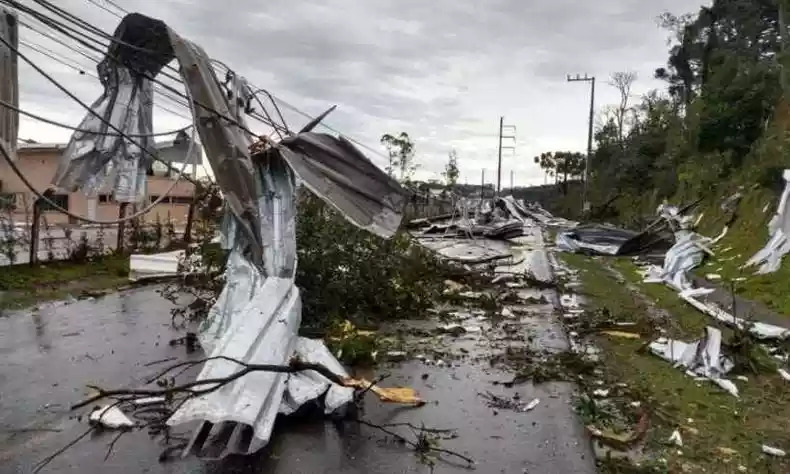Acting President Geraldo Alckmin pledges funds to affected towns in Rio Grande do Sul. The government will give R$800 per person hit by the recent cyclone.
The funds come from the Ministry of Social Development to aid homeless families. Minister Wellington Dias said towns must submit lists of affected people.
The number of towns getting federal help could go up, according to Dias. Every listed homeless person will get aid.
Paulo Pimenta, the Communications Secretary, said Alckmin will visit affected areas on Sunday.

The visit aims to coordinate relief efforts with local and state officials.
Alckmin also plans to send 20,000 food baskets. The first 5,000 baskets will arrive on Sunday.
An emergency room will also open in Rio Grande do Sul, led by General Hertz Pires do Nascimento.
Cyclone Background
Brazilian officials have raised the count of missing people from 25 to 46 after a destructive cyclone in the south.
This event also resulted in 41 deaths. Civil defense teams in Rio Grande do Sul state confirm that search efforts are ongoing five days later.
The severe weather hit 85 towns. Over 10,000 people had to evacuate their homes. Latest numbers show that more than 135,000 people are affected.
Eduardo Leite, the governor, expressed hope for quick recovery in Muçum, the town hit hardest. Muçum saw at least 15 deaths.
Around 1,000 rescue workers and about ten helicopters have joined the search. Two bridges are destroyed, and several routes are blocked.
The weather remains unstable due to a cold front from Uruguay.
Brazil often faces extreme weather, and scientists suggest this is linked to global warming.
In June, another cyclone caused at least 13 deaths in the same state. Thousands had to evacuate or lost their homes.
In February, 65 people died from landslides due to heavy rainfall in Sao Sebastiao, a beach town near Sao Paulo.

